Posted on October 17, 2009 by The Orwell Prize -

Peter Oborne is a former political commentator of the Spectator, the Daily Telegraph and Daily Mail. He now writes about politics for Open Democracy and Middle East Eye. He is the author of ‘The Triumph of the Political Class’, and ‘The Rise of Political Lying’ as well as a biography of the cricket Basil D’Oliveira.
Posted on October 18, 2008 by The Orwell Prize -

Clive James is a writer, poet, essayist, commentator and broadcaster. Amongst many newspapers and magazine James has written for The Listener, the New Statesman, the Review, The Observer, The Guardian, the LRB, The Spectator and the Times Literary Supplement. He has created and presented television and radio programmes including Fame in the Twentieth Century, and the Postcard series. He wrote his first book of autobiography, Unreliable Memoirs in 1979.
Submitted articles
Other links
Posted on October 18, 2008 by Eric Blair -
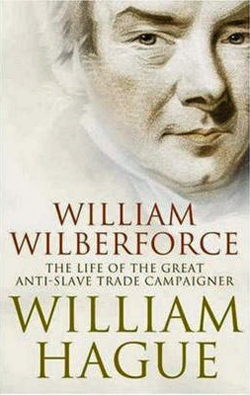
William Hague has written the life of William Wilberforce who was both a staunch conservative and a tireless campaigner against the slave trade. Hague shows how Wilberforce, after his agonising conversion to evangelical Christianity, was able to lead a powerful tide of opinion, as MP for Hull, against the slave trade, a process which was to take up to half a century to be fully realised. Indeed, he succeeded in rallying to his cause the support in the Commons Debates of some the finest orators in Parliament, having become one of the most respected speakers of those times. Hague examines twenty three crucial years in British political life during which Wilberforce met characters as varied as Louis XVI and Marie Antoinette, Tsar Alexander of Russia, and the one year old future Queen Victoria who used to play at his feet. He was friend and confidant of Pitt, Spencer Perceval and George Canning. He saw these figures raised up or destroyed in twenty three years of war and revolution. Hague presents us with a man who teemed with contradictions: he took up a long list of humanitarian causes, yet on his home turf would show himself to be a firm supporter of the instincts, interests and conservatism of the Yorkshire freeholders who sent him to Parliament. William Hague’s masterful study of this remarkable and pivotal figure in British politics brings to life the great triumphs and shattering disappointments he experienced in his campaign against the slave trade, and shows how immense economic, social and political forces came to join together under the tireless persistence of this unique man.
Posted on October 18, 2008 by The Orwell Prize -
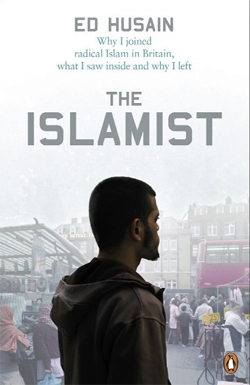
When I was sixteen I became an Islamic fundamentalist. Five years later, after much emotional turmoil, I rejected fundamentalist teachings and returned to normal life and my family. I tried to put my experiences behind me, but as the events of 7/7 unfolded it became clear to me that Islamist groups pose a threat to this country that we — Muslims and non-Muslims alike — do not yet understand. Why are young British Muslims becoming extremists? What are the risks of another home-grown terrorist attack on British soil? By describing my experiences inside these groups, the reasons I joined them and how, after leaving I recovered my faith and mind, I hope to explain the appeal of extremist thought, how fanatics penetrate Muslim communities and the truth behind their agenda of subverting the West and moderate Islam. Writing candidly about life after extremism, I illustrate the depth of the problem that now grips Muslim hearts and minds. I will lay bare what politicians and Muslim ‘community leaders’ do not want you to know. This is the first time an ex-member openly discusses life within radical Islamic organisations. This is my story.
Posted on October 18, 2008 by The Orwell Prize -

Michael Settle is the UK political editor of The Herald.
Submitted articles
Other links
Posted on October 18, 2008 by The Orwell Prize -

Drawing on a huge range of sources – letters, memoirs, conversations – Orlando Figes tells the story of how Russians tried to endure life under Stalin. Those who shaped the political system became, very frequently, its victims. Those who were its victims were frequently quite blameless. The Whisperers recreates the sort of maze in which Russians found themselves, where an unwitting wrong turn could either destroy a family or, perversely, later save it: a society in which everyone spoke in whispers – whether to protect themselves, their families, neighbours or friends – or to inform on them.
Posted on October 18, 2008 by The Orwell Prize -

Explosively personal account by a British lawyer who defends Death Row prisoners and Guantanamo Bay detainees. Clive Stafford Smith is the 46-year-old human-rights lawyer who has famously – some would say notoriously – spent more than twenty years in the United States representing prisoners on Death Row. His clients include many detainees in Guantanamo Bay in Cuba, and he established the London-based charity Reprieve, developed to defending human rights in 1999. His book is quite simply, devastating, and many will laugh and cry reading it: laugh in disbelief, and cry in despair at the utter inhumanity and lack of imagination wrapped up in hypocrisy so enormous that it beggars understanding. Yet even in the face of insurmountable odds, Clive Stafford Smith remains an optimist. Few could maintain his capacity for work and his commitment to his clients if he allowed frustration or despair to divert him. His experiences, graphically recounted in this book, have enabled him to shine a bright, unblinking light into the darkest corners of illegality that are being justified by governments in the name of the War on Terror.
Posted on October 18, 2008 by The Orwell Prize -
Justin Webb is one of the presenters of the Today programme on BBC Radio 4. He joined the BBC as a graduate trainee in 1984 working in Northern Ireland for BBC Radio Ulster based in Belfast, before becoming a reporter on the Today programme. After leaving Today, he worked as a foreign affairs correspondent based in London covering news around the world. He then presented the BBC news – moving from Breakfast to the Six O’Clock News – during which time he interviewed prime ministers John Major and Tony Blair. There then followed three years working as the BBC’s Europe correspondent based in Brussels before being posted to Washington as the chief radio correspondent, and then BBC North America editor, in 2001.
Submitted articles
Other links
Posted on October 18, 2008 by The Orwell Prize -
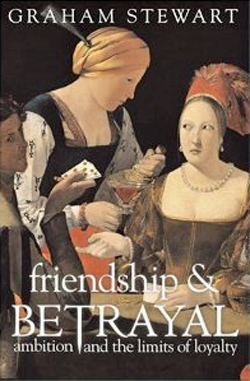
Drawing on a wide range of historical examples, Graham Stewart explores the intriguing question of whether friendship can survive the pressures of public life. He examines in detail three relationships from across centuries and nations to illustrate how people in power cope with the pleasures and pitfalls of friendship in public life. His first example, Courtiers, tells the story of Queen Anne and Sarah, Duchess of Marlborough, and shows how the introduction of a new ‘favourite’ can ensure a powerfully jealous reaction from the long standing friend who is displaced. His second example, Revolutionaries, relates the tale of one of the United States’ greatest Founding Fathers, Benjamin Franklin, and his relationship with his longest serving political partner, Joseph Galloway. Here were two ambitious men whose friendship was broken in bitterness by divided loyalties during the American War of Independence. The third example, Liberals, brings us back to Britain and the friendship between Herbert Henry Asquith and his best friend Richard Burdon Haldane. Their relationship helped ensure that one became Prime Minister and the other Lord Chancellor, but as Stewart sums up ‘with success came harsh political necessities, and only one of them was marked out to pay the sacrifice.’ Indeed it is Stewart’s view that ‘great leaders usually find that when they reach the summit they are alone.’ We see how single-mindedness, indeed selfishness, appears a necessary quality in the scramble for preferment and how friendship can so quickly turn into rivalry. Incisive and thought-provoking, Friendship & Betrayal is a fascinating examination of an age old dilemma that continues to animate public life today.
Posted on October 18, 2008 by The Orwell Prize -
The Orwell Prize for Journalism 2008 was awarded to Johann Hari, but returned on 14 September 2011.
Posted on October 18, 2008 by The Orwell Prize -

Rudyard Kipling was born in Bombay in 1865 and spent his early years there, before being sent, aged six, to England, a desperately unhappy experience. Charles Allen’s great-grandfather brought the sixteen-year-old Kipling out to Lahore to work on The Civil and Military Gazette with the words ‘Kipling will do’, and thus set young Rudyard on his literary course. And so it was that at the start of the cold weather of 1882 he stepped ashore at Bombay on 18 October 1882 – ‘a prince entering his kingdom’. He stayed for seven years during which he wrote the work that established him as a popular and critical, sometimes controversial, success. Charles Allen has written a brilliant account of those years – of an Indian childhood and coming of age, of abandonment in England, of family and Empire. He traces the Indian experiences of Kipling’s parents, Lockwood and Alice and reveals what kind of culture the young writer was born into and then returned to when still a teenager. It is a work of fantastic sympathy for a man – though not blind to Kipling’s failings – and the country he loved.
Posted on October 18, 2008 by The Orwell Prize -

Paul Vallely writes on social, ethical and religious issues. He is a former executive editor of the Independent on Sunday and of The Sunday Times News Review. He has previously reported from over 30 countries and was the Africa correspondent for The Times. He has written a number of books including Bad Samaritans: First World Ethics and Third World Debt and Promised Lands, a study of land reform in the Philippines, Brazil and Eritrea. He is the editor of The New Politics: Catholic Social Teaching for the 21st Century and A Place of Redemption: a Christian approach to punishment and prison.
Submitted articles
Other links
Posted on October 18, 2008 by Eric Blair -
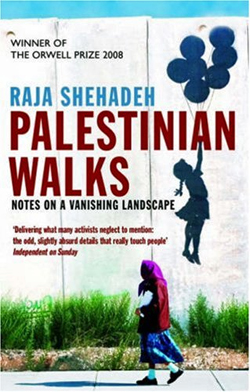
Palestine is a land of biblical beauty – of olive groves, grapevines, stone buildings, rolling hills, wadis and cliffs. It is also a land of violence and war. Human rights lawyer and writer Raja Shehadeh has lived on the West Bank since his family fled Jaffa in 1948. A peace activist of independent temper, he has seen at first hand the horrors of occupation – including the siege of Ramallah. For decades Raja has found comfort in walking, following what in Arab culture is called sarha – meaning to roam freely, at will, without restraint: to go where the spirit takes you.
In Palestinian Walks he invites the reader to come along for the unique experience of a sarha in Palestine. The six walks that comprise the book span a period of twenty six years evoking the land, its history and some of Palestinian’s political struggles, disappointments and hope. Palestinian Walks describes a vanishing landscape. Raja takes us to beautiful hills, past rivers and sacred springs, to famous landmarks from A’yn Qenya, the Shukba Caves, from Wadi Qelt to the Dead Sea (now receding by a metre every year thanks to Israel’s diversion of the river Jordan, an environmental catastrophe in the making).
We take a walk with Selma Hasan, a PLO functionary from Tunis, who returned after the Oslo Accords (a settlement that undermined decades of Raja’s legal work on land rights). And we experience the everyday humiliations and harassment by Israeli soldiers – including a chance meeting with a settler who lives next to Raja’s hometown. But there are also moments of extraordinary beauty:
To my left at the perfectly still waters of the [Dead] Sea, transformed by the sun into a luminous platinum sheet, and to my right at the formidable wall of incandescent rock along which we were travelling, towering steeply, challengingly, seemingly an impenetrable line of defence, a mighty gateway into another world.
Palestinian Walks shows how Raja’s life, and the fate of the landscape are utterly intertwined. It is an intensely personal account of life in one of the world’s most troubled regions, and a poignant story of how a pleasure so many of us take for granted – the freedom to roam through the countryside – is being destroyed.
Posted on October 18, 2008 by The Orwell Prize -

Longlisted for work published by the New Statesman. Martin Bright began his journalistic career writing in very simple English for a magazine aimed at French school children. This experience has informed his style ever since. He worked for the BBC World Service, and The Guardian before joining The Observer as Education Correspondent. He went on to become Home Affairs Editor before becoming the New Statesman’s political editor in 2005. He left the New Statesman in January 2009, and started blogging on Spectator.co.uk. He was appointed political editor of the Jewish Chronicle in August 2009.
Submitted articles
Other links
Posted on October 18, 2008 by The Orwell Prize -

Alec Russell is the commentand anlysis editor of the Financial Times, having previously been world news editor. He started his career as a journalist in Romania in the aftermath of the December 1989 revolution. He was in Bosnia and Croatia during the war from 1991 to 1993 and then spent five years based in South Africa as the Daily Telegraph’s correspondent. He then became the paper’s foreign editor for the Iraq War. In 2007 he returned to South Africa for the Financial Times for a second stint. Alec has written three books: Prejudice and Plum Brandy, about his time in the Balkans; Big Men, Little Men, a reflection on his time in South Africa in the mid 90s; and After Mandela, about South Africa under Mbeki. His writing has won several awards and his dispatches from southern Africa have earned him nominations for the 2008 Pulitzer Prize and for British foreign correspondent of the year.
Submitted articles
- Softly, softly: Mbeki seeks ways to limit chaos to the north and tensions within
- No end in sight Zimbabwe groans amid shortages and spiralling inflation
- A long journey
- Fenced in: Why land reform in South Africa is losing its pace
- The new colonialists
- The left-leaning Zulu
Other links
Posted on October 18, 2008 by The Orwell Prize -

Tim Phillips’ book tells the human story of the siege – of the terrible toll that thirst, hunger and sleeplessness took on the hostages, of the bravery of those who dealt with the terrorists, such as the elderly headmistress of the school and the doctor who tried to relieve the suffering of the young children. Phillips also looks at the authorities’ response to the siege and finds it severely wanting. He has spent time in Beslan researching the book, talking to those involved and those affected, listening to the conspiracy theories, and trying to set the events of September 2004 in their wider context of centuries of conflict and enmity in the Caucasus.
Posted on October 18, 2008 by The Orwell Prize -
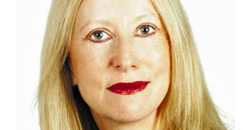
Mary Riddell is an assistant editor of the Daily Telegraph, where she is a columnist and political interviewer. A former deputy editor of Today, she has written for a number of national newspapers, including The Observer, on social, constitutional and foreign affairs, as well as covering criminal justice and Westminster politics. Her writing awards include Interviewer of the Year in the British Press Awards and a commendation in the feature-writing category. She has twice been named legal journalist of the year by the Bar Council and has previously been shortlisted for the Orwell Prize for Journalism (2008).
Submitted articles
Other links
Posted on October 18, 2008 by The Orwell Prize -

A History of Modern Britain confronts head-on the victory of shopping over politics. It tells the story of how the great political visions of New Jerusalem or a second Elizabethan Age, rival idealisms, came to be defeated by a culture of consumerism, celebrity and self-gratification. In each decade, political leaders think they know what they are doing, but find themselves confounded. Every time, the British people turn out to be stroppier and harder to herd than predicted. Throughout, Britain is a country on the edge – first of invasion, then of bankruptcy, then on the vulnerable front line of the Cold War and later in the forefront of the great opening up of capital and migration now reshaping the world. This history follows all the political and economic stories, but deals too with comedy, cars, the war against homosexuals, Sixties anarchists, oil-men and punks, Margaret Thatcher’s wonderful good luck, political lies and the true heroes of British theatre.















